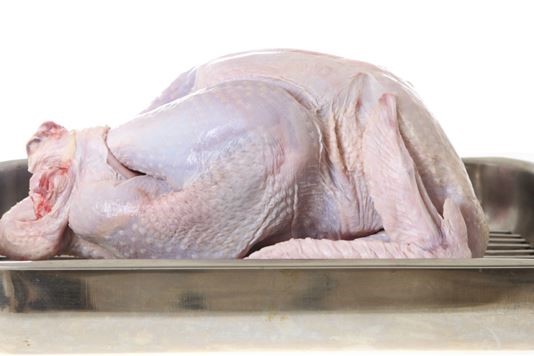New FSA study raises food poisoning concerns

The FSA has found dangerous bacteria on both the inside, and outside packaging, of shop-bought chickens.
The Food Standards Agency (FSA) has published its first set of quarterly results from a survey into the presence of campylobacter bacteria in fresh shop-bought chickens.
Over half (59%) of its sample tested positive for the presence of campylobacter, and 4% of the chickens were found to have the bacteria on the outside of the packaging. Though the latter is a very low level, it underlines how it's important to wash your hands thoroughly after handling packaged poultry.
Food poisoning in the UK
Campylobacter is the most common cause of food poisoning in the UK, and affects around 280,000 people a year. The majority of these cases stem from contaminated poultry, says the FSA, so it is important that chicken is prepared and cooked appropriately, particularly in light of these findings.
Catherine Brown, FSA Chief Executive, says that this new survey of shops “is an important part of the work we are doing to tackle campylobacter” and the “low levels of contamination found on packaging potentially indicate the effectiveness of the leak-proof packaging for poultry introduced by most retailers, which helps to reduce risks of cross contamination in consumers’ kitchens.”
She says the survey "will give us a clearer picture of the prevalence of Campylobacter on raw poultry sold at retail and help us measure the impact of interventions introduced by producers, processers, and retailers to reduce contamination."
Good kitchen practice
The FSA offers the following advice to ensure you avoid spreading bacteria during preparation and kill it during cooking.
- Cover and chill raw chicken – cover raw chicken and store at the bottom of the fridge so juices cannot drip on to other foods and contaminate them with food poisoning bacteria such as campylobacter.
- Don’t wash raw chicken – cooking will kill any bacteria present, including campylobacter, but washing chicken can spread germs by splashing.
- Wash used utensils – thoroughly wash and clean all utensils, chopping boards and surfaces used to prepare raw chicken. Wash hands thoroughly with soap and warm water, after handling raw chicken. This helps stop the spread of campylobacter by avoiding cross contamination.
- Cook chicken thoroughly – make sure chicken is steaming hot all the way through before serving. Cut in to the thickest part of the meat and check that it is steaming hot with no pink meat and the juices run clear.
Update 06/08/2014
The government has released a statement regarding campylobacter bacteria found in chickens, saying that they continue to work with the FSA to reduce the risk of food poisoning, and that its "top priority is the safety of the public and people need to feel confident in the food they buy." Read the full response here.
You might also like:
Why washing chicken could make you seriously ill
Comments
Be the first to comment
Do you want to comment on this article? You need to be signed in for this feature